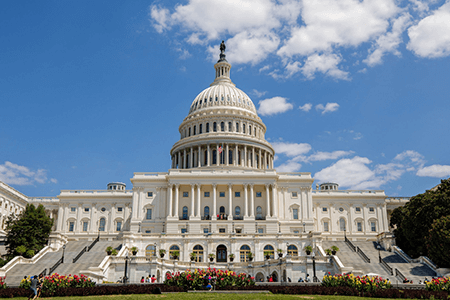WASHINGTON, DC (May 7, 2024) – The American Chemistry Council (ACC) submitted a statement for the record to leaders of the U.S. House Committee on Energy and Commerce in support of today’s hearing entitled "EPA’s RMP Rule: Failures To Protect The American People And American Manufacturing."
The comments reiterate ACC’s support for the Risk Management Program (RMP) and point out that RMP is one of several programs that have helped reduce chemical safety incidents by 80%. Despite decades of success, ACC is concerned that the Environmental Protection Agency (EPA) chose to ignore its own data to impose problematic changes to RMP that threaten national security and supply chain resiliency.
“EPA has discarded its successful approach for enhancing chemical facility safety. Instead, the Agency has imposed broad new mandates that will not reduce the risk of accidental releases,” said Dr. Kimberly Wise White, Vice President of Regulatory and Scientific Affairs in comments submitted to the Committee. “We are further concerned that the rule weakens important safeguards needed to protect sensitive information, potentially increasing the risk of a harmful chemical incident. The new RMP rule adds to a surge in misguided regulations that undermine the ability of chemical manufacturers to create essential products here in the U.S. and support the broader economy.”
In her comments, Dr. Wise White highlights two especially troubling changes EPA made to RMP. First, EPA’s new information disclosure requirements put communities and national security at risk by weakening safeguards put in place to prevent terrorists and other bad actors from exploiting sensitive information collected about chemical facilities.
Secondly, EPA has failed to demonstrate that its new Safer Technology & Alternatives Assessment Analysis (STAA) provisions will improve rates of accidental releases. EPA’s own history provides multiple explanations as to why a STAA requirement should not be required, and the Agency has noted before that states that have implemented such requirements in their own regulations do not see significant differences in the rate of accidental releases.
The comments go on to explain that EPA’s new rule undermines the goals of the Biden-Harris Administration to revitalize U.S. manufacturing and jobs through legislation passed by Congress, including the Inflation Reduction Act, the CHIPS and Science Act, and the Infrastructure Investment and Jobs Act. For example, the rule’s new requirements will make it harder to produce chemistries in America that are vital to clean drinking water, semiconductors and electric vehicles.
“The RMP rule will make it more difficult to manufacture these critical chemistries without providing any significant added safety benefit, will only hinder the Administration’s goals, weaken the country’s supply chain, and increase the costs on vital products and services for Americans,” Dr. Wise White concluded.



